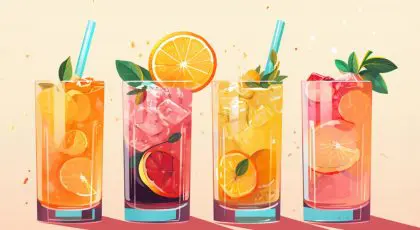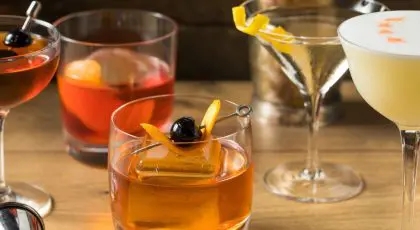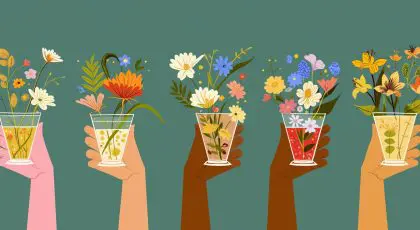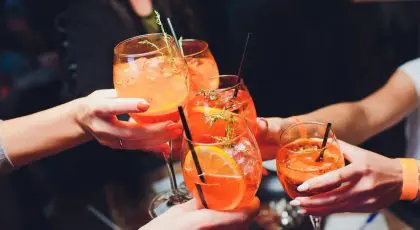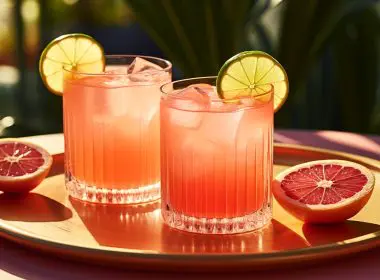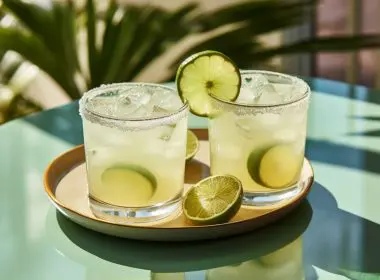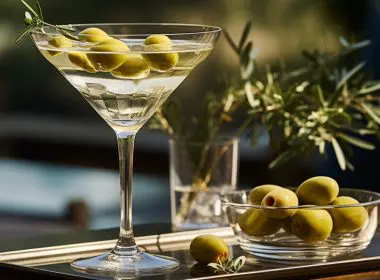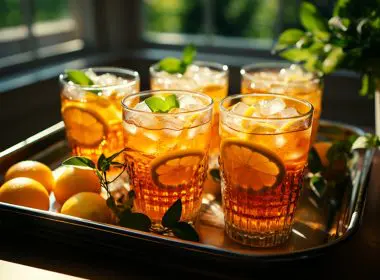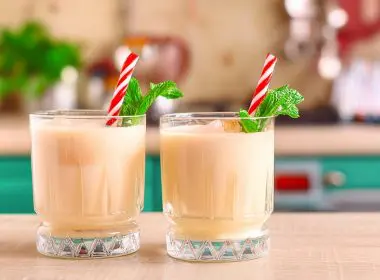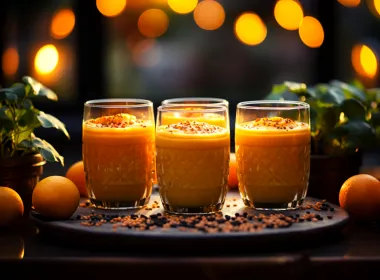Sip with Intent: The Ultimate Guide to Mindful Drinking
Jump to:
Mindful drinking is on the rise, and we are in complete support of this important movement. In a world where social gatherings often revolve around clinking glasses and unwinding with a drink, it can be easy to fall into an autopilot mode of consumption.
But what if there was a way to approach alcohol with intention and awareness, fostering a healthier and more balanced relationship with it? Good news, friends! There is! Welcome to the practice of sipping with intent and our handy guide to mindful drinking
What is mindful drinking?
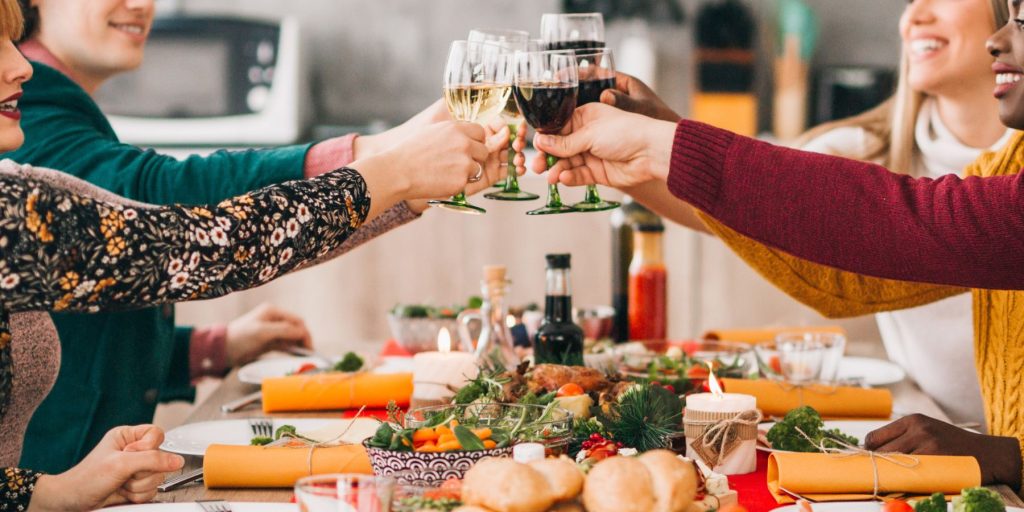
Mindfulness and drinking aren’t necessarily about complete abstinence or adhering to rigid rules. It’s about consciously choosing if, when, and how much to drink while being present in the experience and understanding the impact on your mind and body. It’s an ongoing exploration of your relationship with alcohol, empowering you to make informed decisions that align with your values and well-being.
What is a mocktail? The Beginner’s Guide
The benefits of drinking mindfully
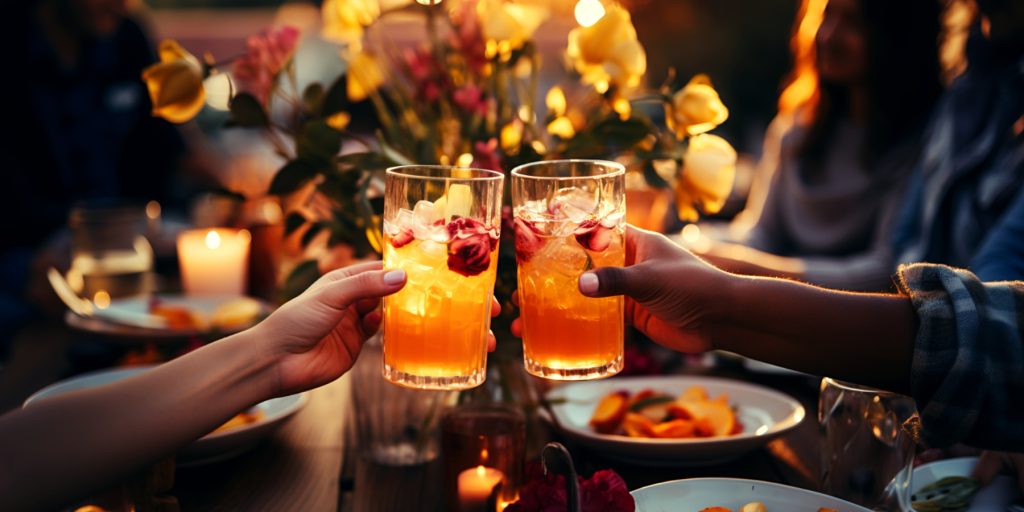
The benefits of mindful drinking extend far beyond simply avoiding the effects of overindulging. Consider the following:
Improved health. Excessive alcohol consumption can negatively impact your physical and mental health. Mindful drinking allows you to reduce your intake and potentially lower the health risks associated with overindulgence.
Enhanced awareness. By slowing down and paying attention to your body’s signals, you can learn to recognize personal limits and avoid overconsumption.
Greater control. Mindful drinking empowers you to take control of your choices, reducing the influence of peer pressure or social expectations.
Deeper connections. When you’re not preoccupied with intoxication, you can be more present in social interactions, fostering deeper connections with friends and family.
Increased enjoyment. Contrary to assumptions, mindful drinking can actually boost your enjoyment of alcohol. By savoring each sip and focusing on the taste, aroma, and experience, you can appreciate the nuances of a drink more fully.
You might also like: 10 Low-Sugar Mocktails to Sip Smartly
Mindful drinking tips to get you started
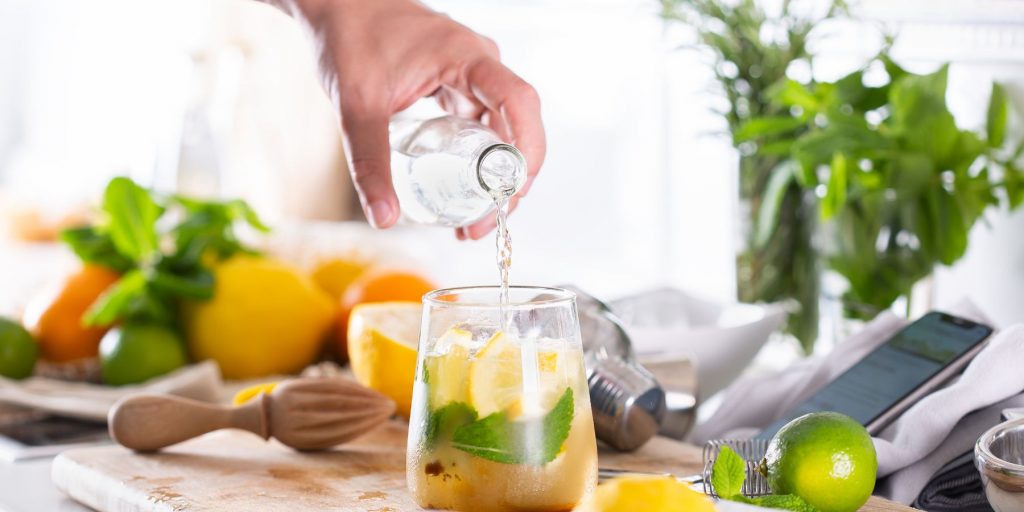
Wondering how to practice mindful drinking? Embracing this way of life is a journey, not a destination. Here are some practical steps to guide the way:
Self-reflection. Begin by understanding your current relationship with alcohol. Ask yourself: Why do I drink? What are my triggers? How does alcohol typically make me feel?
Set intentions. Decide on your desired outcome. Do you want to reduce your overall consumption? Improve your sleep quality? Be present in social settings? This mindful drinking exercise lays the groundwork for a rewarding experience in the long run. Having clear goals will help you stay motivated.
Plan ahead. Before attending an event or social gathering, decide whether you want to drink at all. If so, establish a limit for yourself and choose non-alcoholic alternatives to alternate with alcoholic drinks.
Savor the experience. When you do choose to drink, slow down and savor each sip. Notice the taste, aroma, and texture of the beverage. Pay attention to how your body feels after each drink.
Practice gratitude. Appreciate the act of mindful drinking as a form of self-care. Recognize your commitment to a healthier relationship with yourself and alcohol.
Cultivate a sense of self-awareness. Mindful drinking practices can extend beyond specific situations and permeate your everyday life. By incorporating mindfulness into your routines, you can cultivate greater awareness and make conscious choices in various aspects of your life. Consider incorporating practices like meditation, journaling, and spending time in nature to cultivate a stronger sense of self-awareness and well-being.
Ultimately, mindful drinking empowers you to make informed choices about your relationship with alcohol. Through conscious effort and self-compassion, you can cultivate a healthier and more balanced approach to alcohol consumption, paving the way for a more fulfilling and present life.
What is the best mocktail: Asked & Answered by the Pros
Clever clinking with non-alcoholic options
The growing popularity of the mindful drinking movement has led to an exciting rise in non-alcoholic beverage options. This allows individuals to enjoy the flavors and social aspects of drinking without the alcohol content. Let’s take a look at some interesting options.
Alcohol-free spirits (0% ABV)
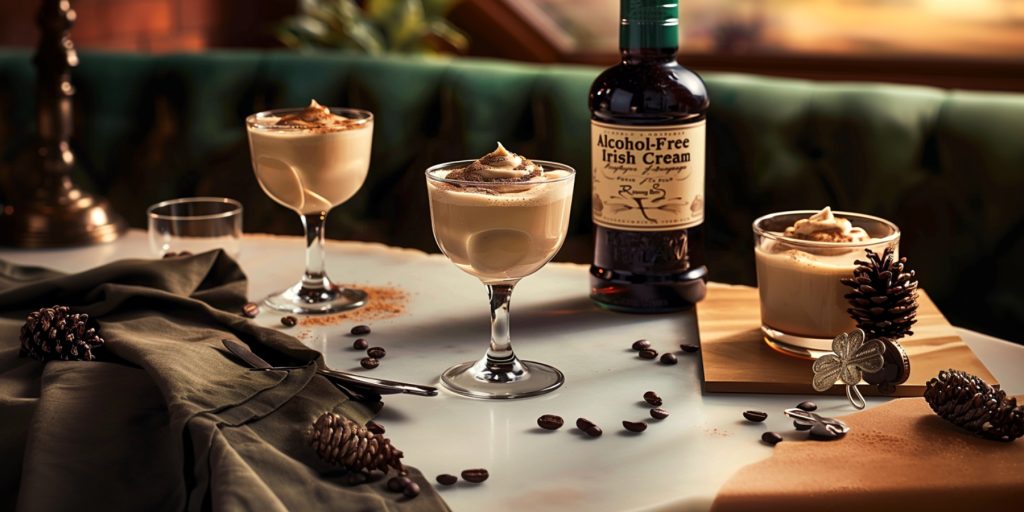
These are crafted to mimic the taste and aroma of traditional liqueurs or spirits like gin, vodka, rum, and whiskey, but without the alcohol. The process of creating these beverages typically involves using a combination of natural botanicals, spices, and flavorings to achieve the desired taste profile.
These flavorful alcohol alternatives offer a range of complex flavors, allowing you to enjoy the taste of your favorite spirit without the ABV. They also boast a lower calorie content compared to their alcoholic counterparts.
Moreover, these alternatives are suitable for various occasions, catering to folks who opt not to consume alcohol, pregnant or breastfeeding women, or those seeking to moderate their alcohol intake in specific situations.
Summer trends: Low ABV Cocktails
Dealcoholized wine
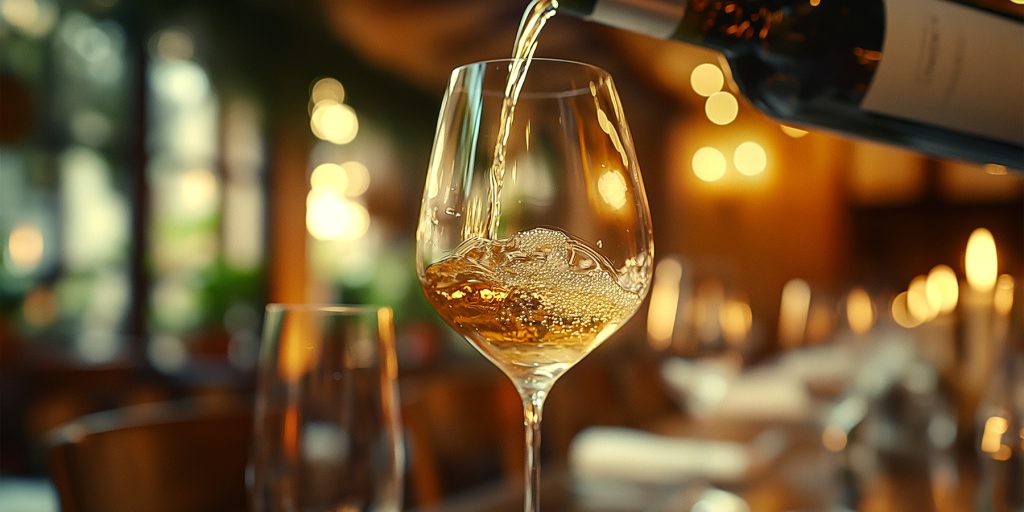
Dealcoholized wine undergoes a process to remove the alcohol content while attempting to preserve the original flavor profile. Different methods, like reverse osmosis, vacuum distillation, and spinning cone columns, are used to achieve this.
These alternatives offer the taste and aroma of wine, a welcome option for connoisseurs who prefer not to indulge in alcohol, allowing them to savor the moment. What’s more, it also comes with the added benefit of being lower in calorie content compared to traditional wine, making it a lighter choice without compromising on flavor.
Please note. While labeled ‘alcohol-free’ or ‘dealcoholized’, trace amounts of alcohol (typically less than 0.5% ABV) might still be present in some products. It’s essential to check labels carefully for any potential allergens or ingredients you might be sensitive to.
Turning your favorite cocktail into a mocktail
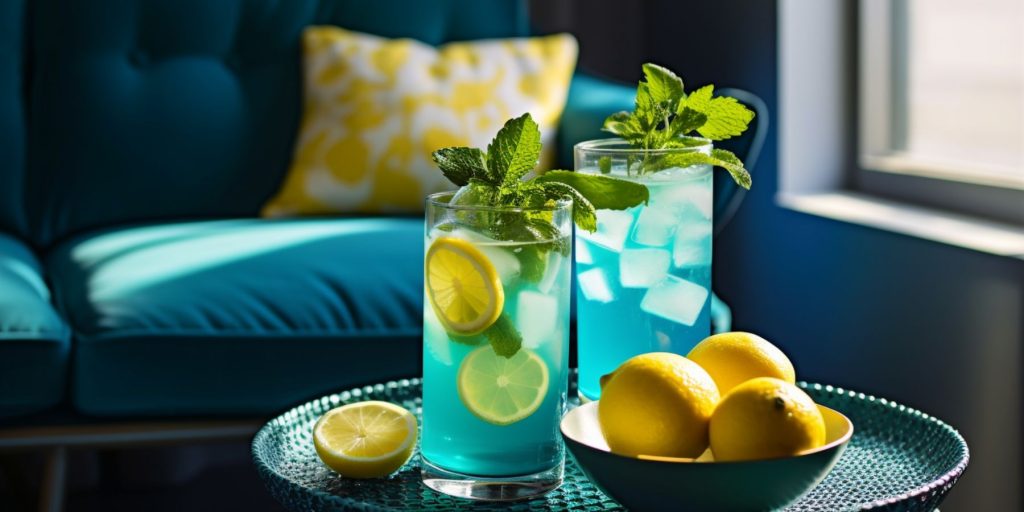
Craving a drink without the alcohol? You can easily transform your favorite cocktail into a delightful mocktail! Simply swap the alcoholic spirit for a flavorful alternative. For instance, if you love a mojito, ditch the rum and muddle fresh mint leaves with lime wedges and a touch of simple syrup. Top it off with club soda and a splash of lime juice for a bubbly and refreshing alternative.
Play around with different ingredients—sparkling water or flavored seltzer can add a fun twist, while fresh herbs like rosemary or lavender can introduce new dimensions of flavor, especially when used in simple syrups. With a little creativity, you can enjoy the familiar taste of your favorite cocktail without the alcohol content.
Read next: 12 Blooming Beautiful Spring Mocktails to Welcome the Season
Enjoying functional mocktails
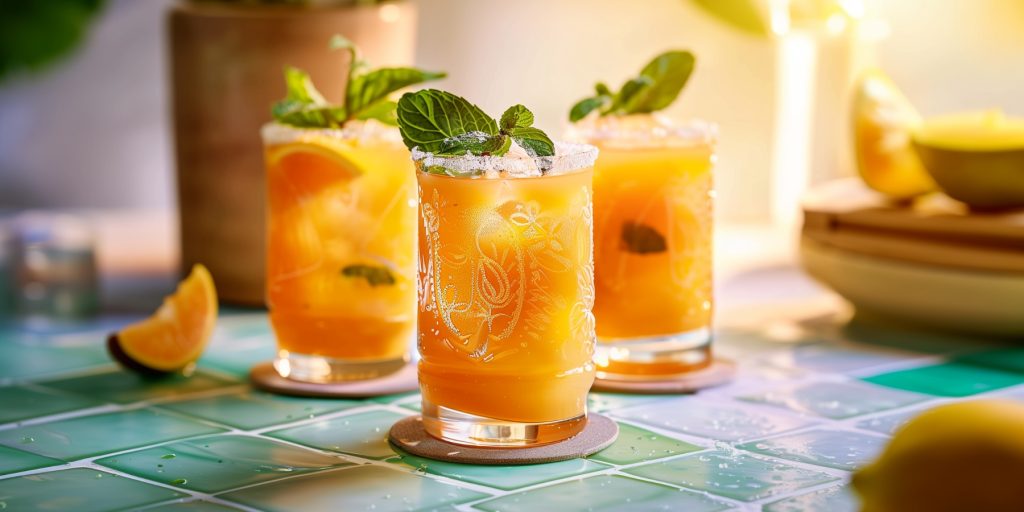
Looking for a delicious drink that not only tastes good, but also offers health benefits? Functional mocktails are your answer! These types of drinks are packed with ingredients chosen for their specific properties. For example, a stressbuster mocktail might combine calming chamomile tea with hydrating coconut water and mood-boosting citrus fruits.
A muscle-recovery mocktail, on the other hand, could incorporate collagen powder, tart cherry juice (known for its anti-inflammatory properties), and electrolytes to replenish lost nutrients after a workout. The possibilities are endless! Explore different ingredient combinations and discover functional mocktails that cater to your individual needs and preferences.
Mindful drinking is not a one-size-fits-all approach. What works for someone else may not work for you. Experiment and find what feels right for you. There’s no shame in saying no. Politely decline if offered a drink you don’t want. True friends will respect your decision.
Always seek support if you need it. If you find it challenging to control your drinking, reach out to a close friend, a healthcare professional or support groups like Alcoholics Anonymous (AA) or SMART Recovery.


